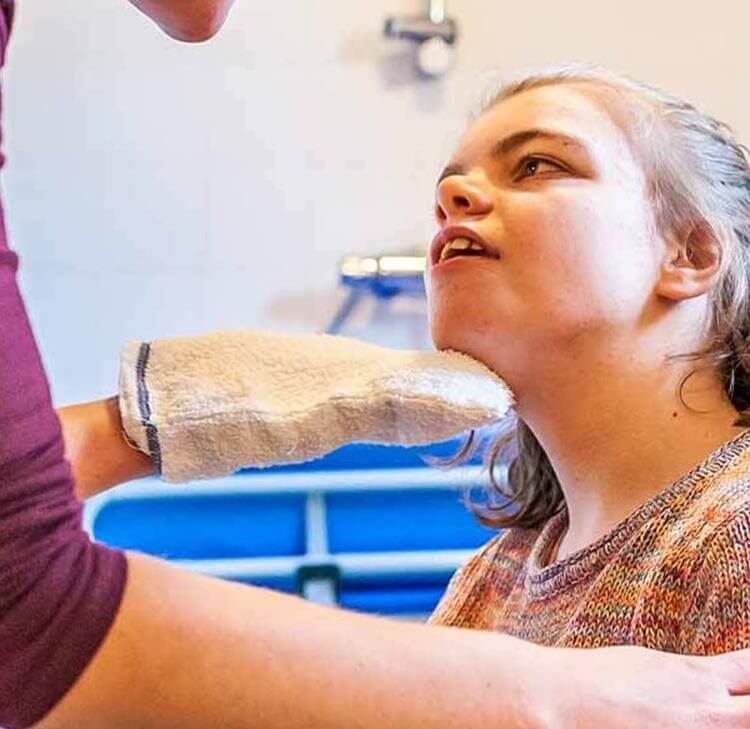Upper Tribunal confirms that the First-tier Tribunal does not have jurisdiction to determine issues around the validity of a patient’s detention.
Upper Tribunal case no: UA-2023-000193 [2023] UKUT 195 (AAC) PQR v Derbyshire Healthcare NHS Foundation Trust
In January 2021, the High Court handed down its judgment in Devon Partnership NHS Trust v Secretary of State for Health and Social Care and NHS Commissioning Board [2021] EWHC 101 (Admin) (“the Devon case”). This case established that, under the Mental Health Act 1983, the phrases “personally seen” and “personally examined” in sections 11(5) and 12(1) Mental Health Actrespectively require the physical attendance of the Approved Mental Health Practitioner and the s.12 approved doctor on the patient, prior to an application being made for detention under s.3 or s.4 of the Mental Health Act, or guardianship under s.7. In other words, it is not sufficient for a patient to be seen or examined by video technology such as MS Teams or Skype, which was a practice that had developed during the Covid-19 pandemic. Browne Jacobson acted for the NHS Trust involved in the Devon case and previously wrote a detailed summary and analysis of the judgment.
The Devon case had serious ramifications for mental health care providers, as remote assessments could no longer be used and any previous remote assessment-based applications for detention or guardianship were deemed unlawful.
Another case is now progressing through the courts where a patient has argued that the First-tier Mental Health Tribunal had jurisdiction to determine a similar point of law in relation to his Community Treatment Order. The case of PQR v Derbyshire Healthcare NHS Foundation Trust [2023] UKUT 195 (AAC) relates to a patient known as PQR, whose Community Treatment Order renewal in 2020 involved a telephone examination by his Responsible Clinician, due to the ongoing Covid-19 pandemic. The Community Treatment Order was renewed again in 2021 and 2022 following face to face assessments.
In June 2022, PQR contested the lawfulness of the 2020 renewal in the context of his application to the First-tier Mental Health Tribunal (Health Education and Social Care Chamber). PQR argued that, for a Community Treatment Order to be lawfully renewed, the Responsible Clinician's assessment had to be conducted in the presence of the patient. As the 2020 assessment had been conducted by telephone, PQR argued that this did not comply with the requirements of the Mental Health Act and accordingly the Community Treatment Order had not been validly renewed. PQR argued that the First-tier Mental Health Tribunal was able to determine this issue. However, the First-tier Mental Health Tribunal disagreed and decided that it did not have the jurisdiction to determine the validity or otherwise of the Community Treatment Order. Rather its jurisdiction was confined to whether the statutory criteria for the Community Treatment Order were met at that time as set out in s.72 Mental Health Act.
During the course of PQR’s First-tier Mental Health Tribunal proceedings, the Trust lodged Part 8 proceedings in the High Court, seeking a declaration from the Court as to the interpretation of the following sections of the Mental Health Act and in particular whether these required in person physical attendance on the patient:
- section 20(3) – renewal of detention of patients admitted to hospital
- section 20(6) – renewals of guardianship
- section 17A(1) – the making of a Community Treatment Order
- section 20A(4) – renewals of Community Treatment Orders.
The Trust noted that the wording of the above sections of the Mental Health Act differs to the wording considered in the Devon case, for example s.17A does not use the word “examine”, whilst the remaining sections do not use the words “personal” or personally ” “examine”. Existing guidance had offered differing views on the correct interpretation of these sections which had caused uncertainty for health and social care professionals on the ground.
In the Part 8 proceedings the Trust therefore sought judicial guidance on the correct interpretation of these sections and whether they required a face to face assessment in all cases. Those proceedings are still ongoing in the High Court. A final hearing on that matter is listed for 31 October and 1 November 2023.
In the meantime, PQR appealed the First-tier Mental Health Tribunal decision to the Upper Tribunal. Judgment has now been handed down and in short it has been held that:
- The remedy PQR was seeking could not be achieved by way of an application to the First-tier Mental Health Tribunal. As stated in the Mental Health Act Code of Practice, the main purpose of the First-tier Mental Health Tribunal is to review the cases of detained and conditionally discharged patients and patients subject to Community Treatment Orders, and to direct the discharge of any patients where it thinks it appropriate.
- On a logical basis, PQR was essentially arguing that, as the 2020 examination had not been carried out correctly, his Community Treatment Order had not been renewed that year. PQR argued he had therefore been automatically discharged at the end of the community treatment period for the Community Treatment Order (under s.20B Mental Health Act). The Upper Tribunal rejected this argument.
- The First-tier Mental Health Tribunal only has the power to discharge/consider the issues set out in s.72 Mental Health Act. Even if the Upper Tribunal had accepted PQR’s argument/analysis (which it didn’t), the First-tier Mental Health Tribunal would not have had the power to discharge him because the Community Treatment Order would already purportedly have ended.
- Following the cases of Ex parte Waldron [1986] QB 824 and R (von Brandenburg) v East London and the City Mental Health NHS Trust [2004] 2 AC 280, the First-tier Mental Health Tribunal's powers are confined to granting or refusing relief to persons liable to be detained. The First-tier Mental Health Tribunal's powers do not include powers to deal with issues of validity of the underlying detention or Community Treatment Order – such issues must be dealt with in the High Court.
In conclusion, the Upper Tribunal found that the First-tier Mental Health Tribunal was right to decide that it had no jurisdiction to rule on the validity of PQR’s Community Treatment Order. The Upper Tribunal also clarified that this did not deprive PQR of a remedy, but rather meant that the legal remedy for such issues lies in the High Court (for example by way of an application for Judicial Review) and not in the tribunal system.
Browne Jacobson LLP acted for the detaining Trust in this case and is also acting for the Trust in the ongoing Part 8 proceedings.
Browne Jacobson will provide an update on the High Court proceedings in due course, as the interpretation of the above Mental Health Act sections is of huge significance and, like the Devon case, could have important implications for mental health providers. If you have any questions or queries in the meantime, do please get in touch.










































